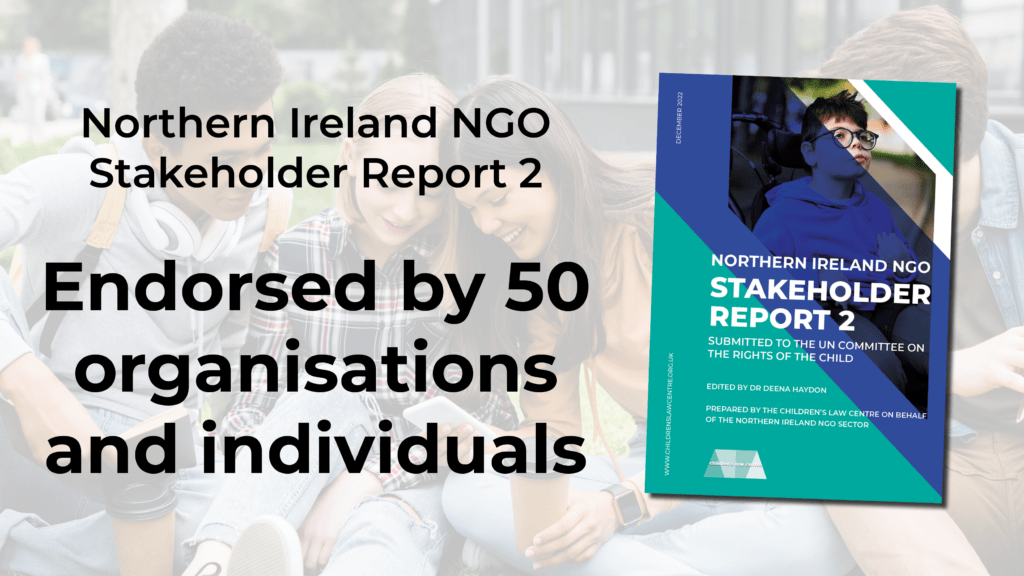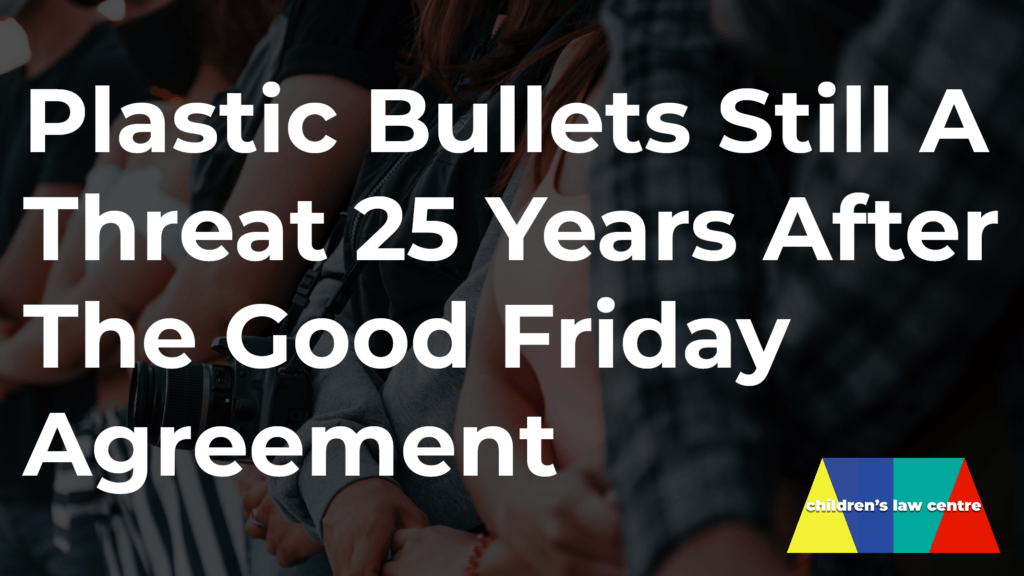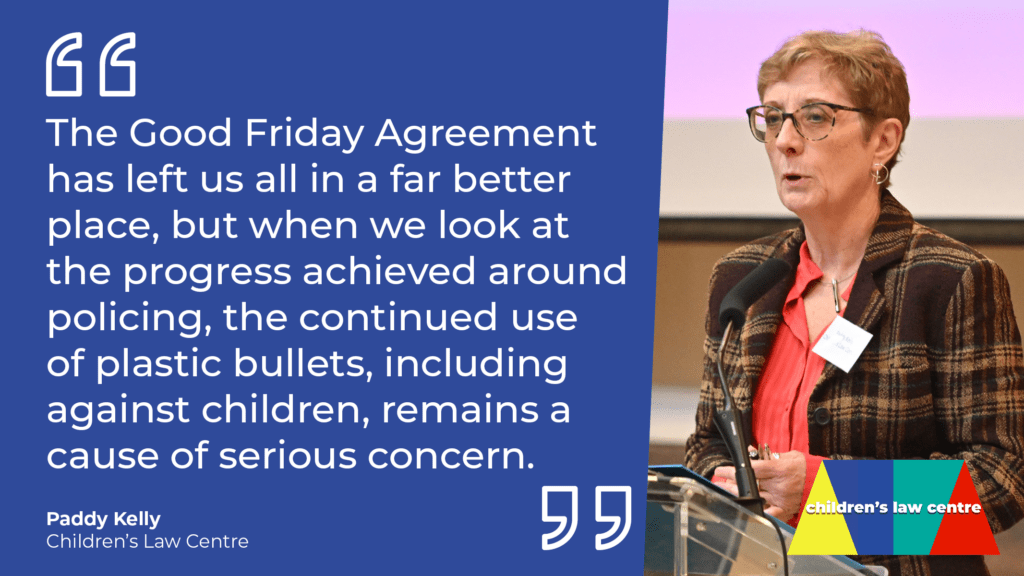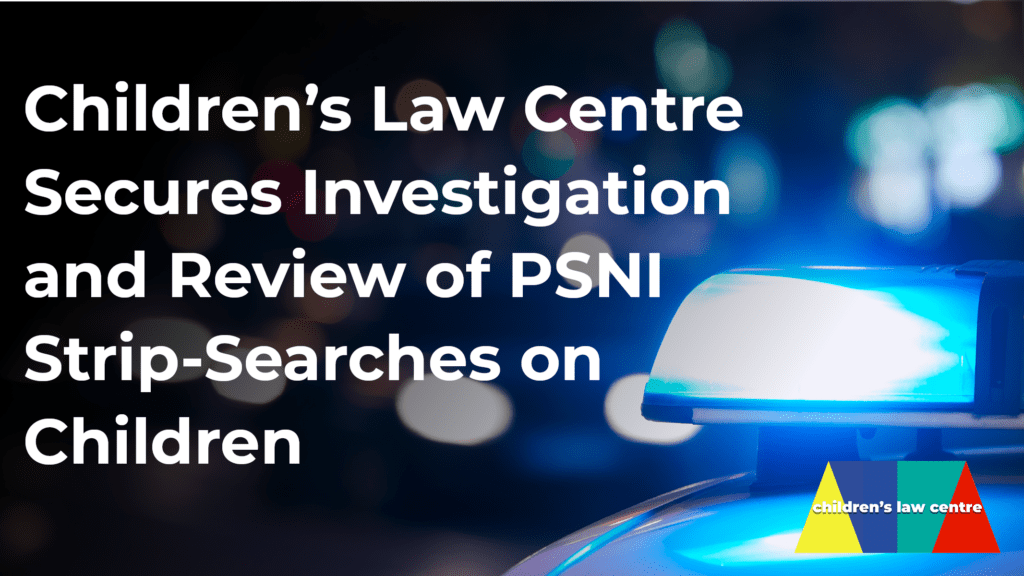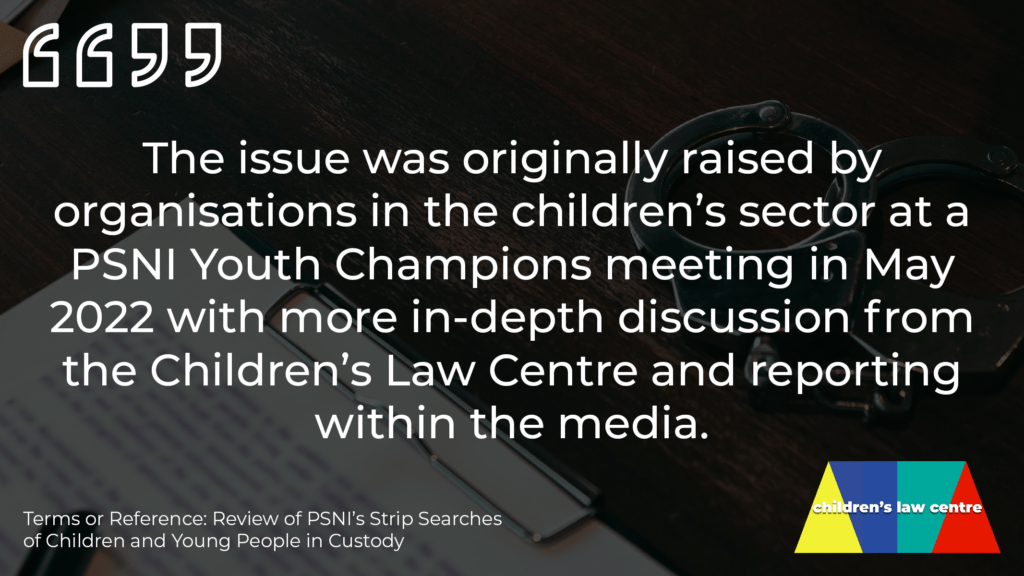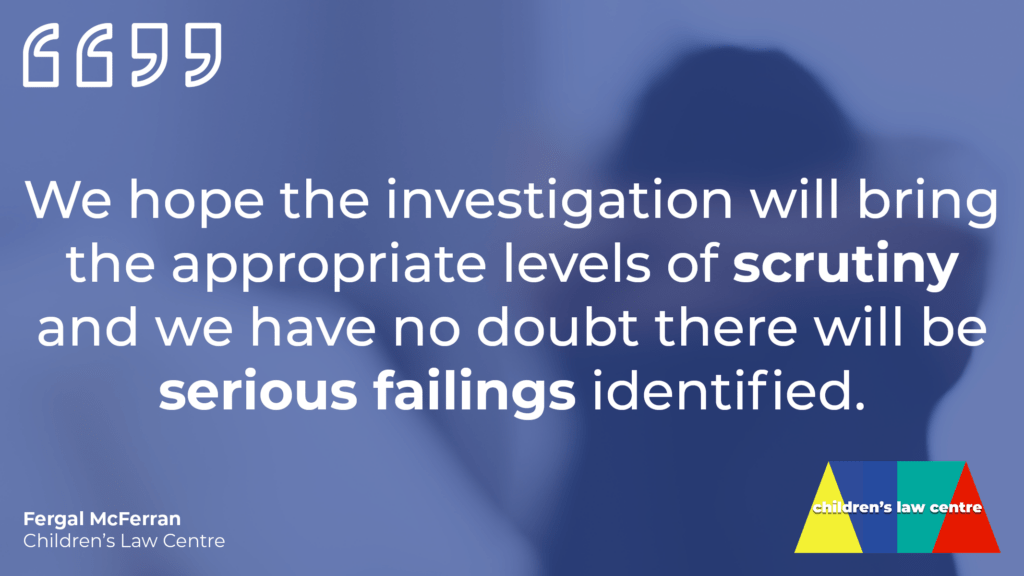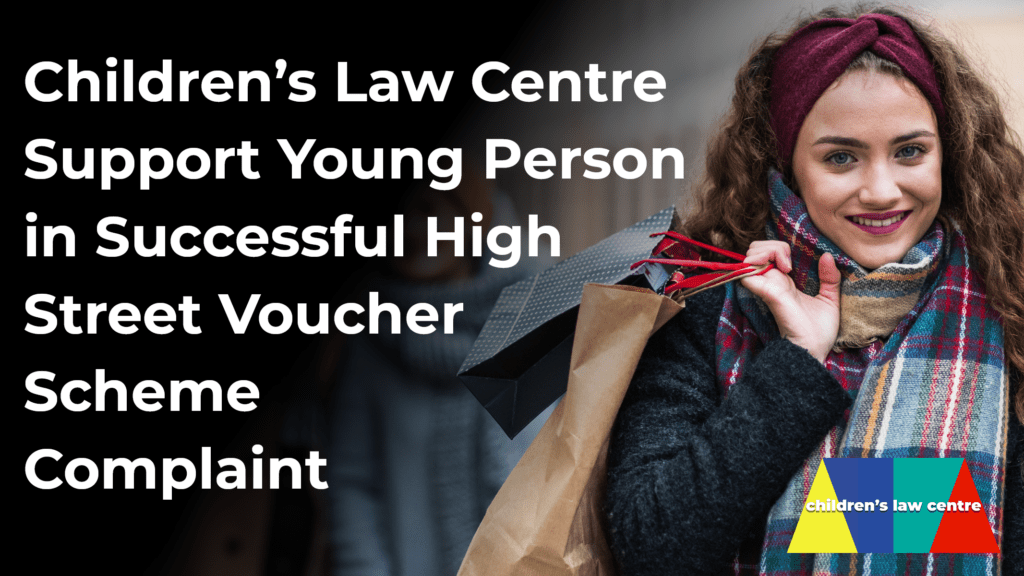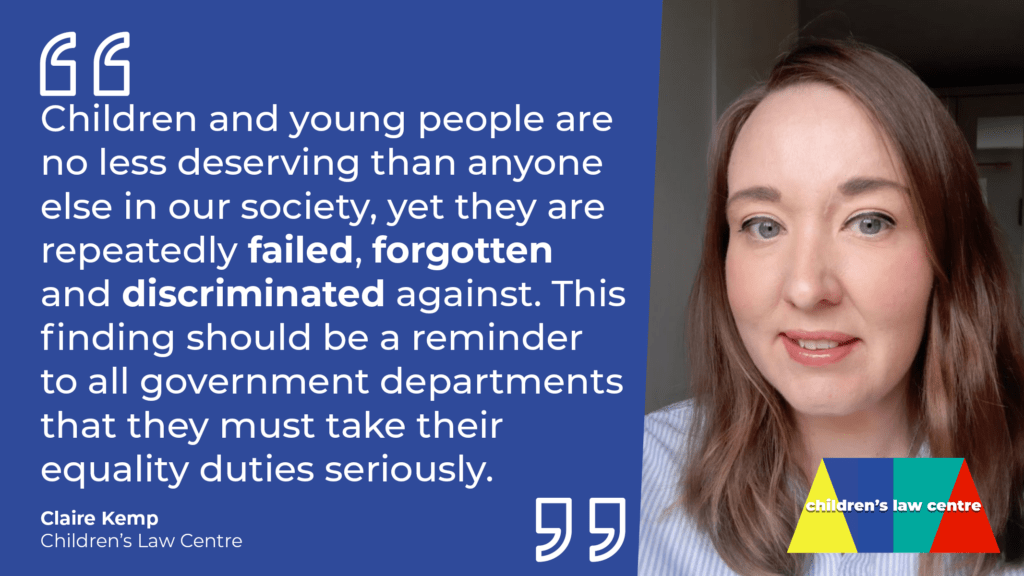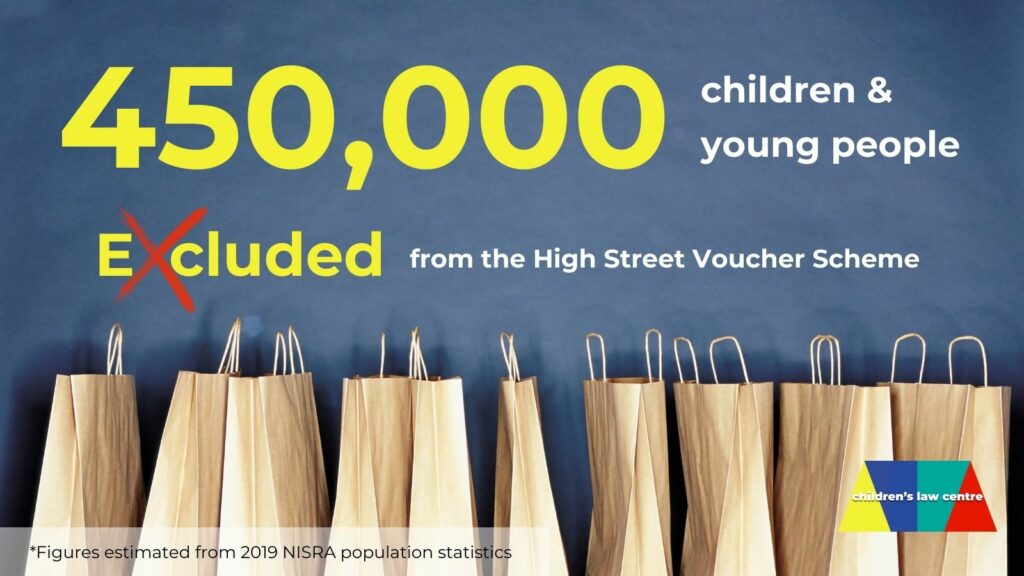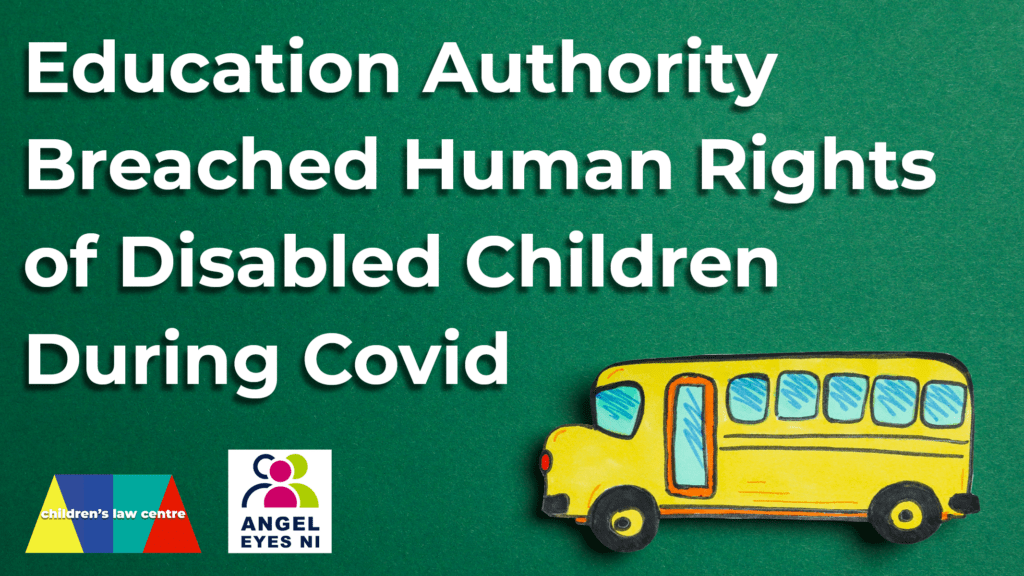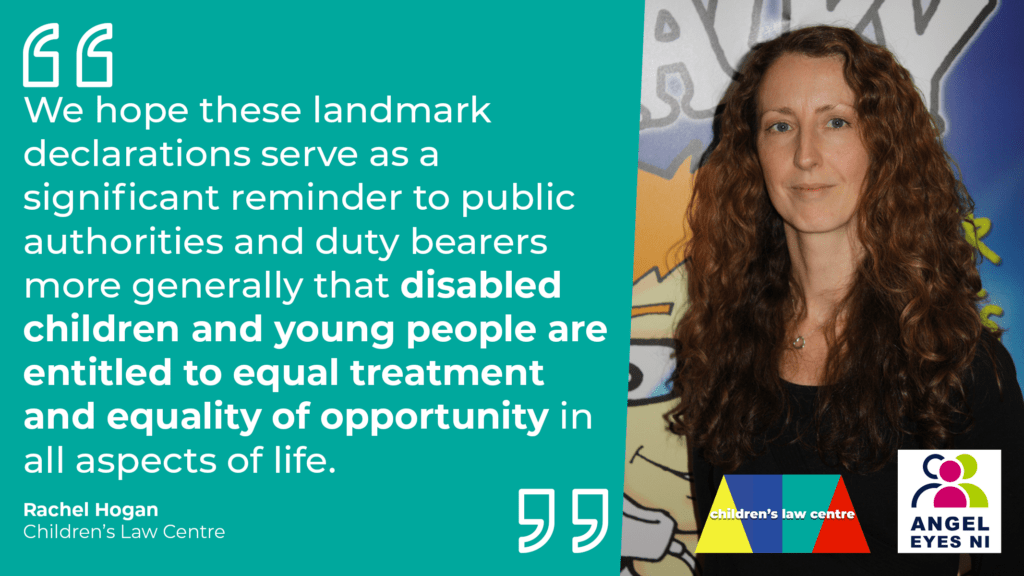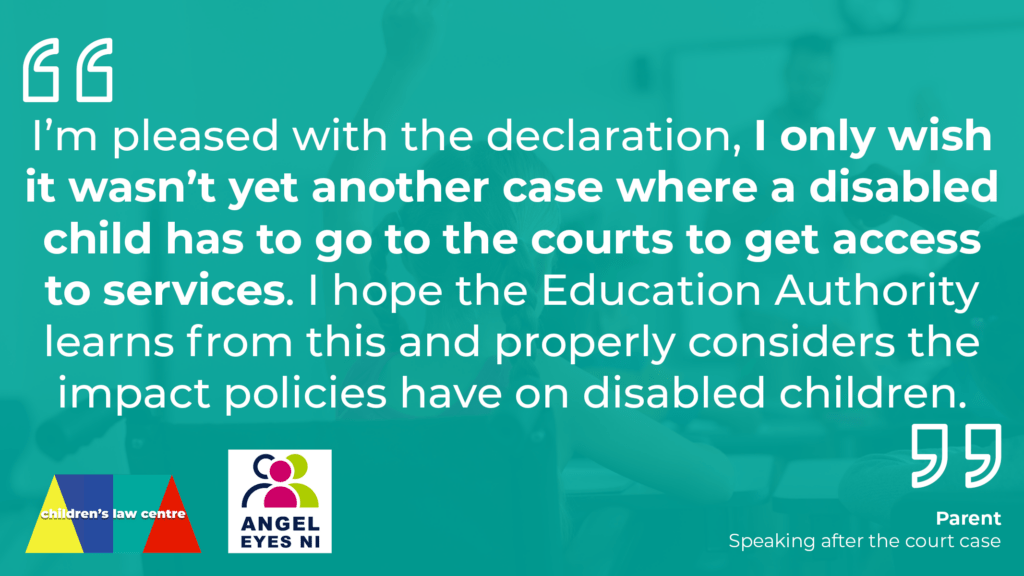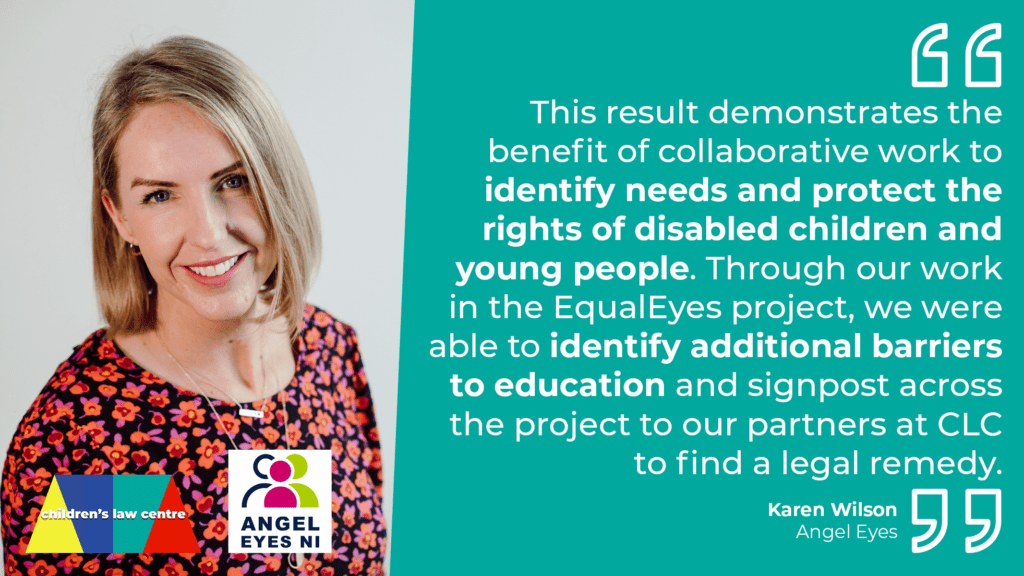February 2023
In two landmark cases, the High Court in Belfast has declared that the human rights of disabled children were breached when they were refused access to school transport, which denied them access to education. The cases were brought before the court through applications seeking leave for judicial review. After the Education Authority (EA) provided solutions for each child, legal declarations were secured through agreement that the children in both cases had been deprived of their right to education under Article 2 of Protocol 1, along with Article 14 of the European Convention on Human Rights.
The cases were brought by the Children’s Law Centre (CLC) on behalf of two children after a referral for specialist legal services by the charity Angel Eyes as part of a joint EqualEyes project with CLC, which protects the equality rights of children with visual impairment. The CLC legal team argued that prolonged and disproportionate Covid restrictions on school transport for reasons related to disability were unjustifiable and unlawful, interfering with the right to education.
One child was unable to attend specialist education placements in person for all but one day of nursery and for the entirety of the P1 and P2 academic years. The best interests of the children and their legal entitlements were entirely discounted within the decision making processes of the EA.
After protracted negotiations to seek and develop alternative educational and transport arrangements for the children, the CLC legal team secured landmark declarations where the EA acknowledged that the children’s human rights to education had been breached during the relevant time periods and they were treated differently to other children because of their disabilities.
Speaking after the conclusion of the case, Rachel Hogan, of the Children’s Law Centre, said:
“This is a significant legal milestone for these children, and for all disabled children who have been denied access to services which enable equality of opportunity. The High Court declarations reinforce the importance of ensuring that public authorities do not place unlawful systemic barriers in the way of disabled people, including disabled children. Failure to ensure accessibility of services throughout society is capable of breaching the human rights of groups of children who are protected by law.
“When we look at the experience of disabled children throughout Covid, including failures to identify mitigations before implementing restrictions, and also their much slower and ongoing return to normal life compared to others, we get a real understanding of the multiple barriers they face. In our legal casework, CLC sees a system-wide failure of equality for disabled children and their families that reaches far beyond the education sphere and into every element of daily life.
“The remedial actions taken and acknowledgements given to these children by the EA are therefore welcome as it is entirely right that public authorities should openly identify barriers to equality in order to enable these to be removed.
“We hope these landmark declarations serve as a significant reminder to public authorities and duty bearers more generally that disabled children and young people are entitled to equal treatment and equality of opportunity in all aspects of life.”
Speaking anonymously by order of the courts, a parent of one of the children welcomed the decision:
“I brought my child’s case to the attention of the Children’s Law Centre as I felt no person or child should be treated differently due to their disability and medical requirements and excluded from transport and vital education and learning with their peers. My child was made to feel different. This declaration will hopefully promote learning from public bodies and understanding that all children should be treated inclusively.”
A parent of the other child spoke of his frustration that his child was treated unfairly:
“This is an important recognition of the failure to treat disabled children fairly, particularly through Covid restrictions. While my child was being denied access to school transport and denied their right to education, other children were permitted to travel on packed school buses with no masks.
“My child was denied access purely on the basis of their disability, with no serious effort to risk assess the situation or consider the best interests of my child.
“I’m pleased with the declaration, I only wish it wasn’t yet another case where a disabled child has to go to the courts to get access to services. I hope the Education Authority learns from this and properly considers the impact policies have on disabled children.”
An immediate impact
Since securing access to education, the impact on the children was clear to see. One of the children initially received sessions of home education and immediately began to show signs of improvement. She began sleeping better, had more energy and became much happier in herself. She is now fully enjoying social and sensory stimulation, loves going to school and is learning to communicate. The family have more ability to recharge their batteries and to carry out their intense caring role while also looking after their younger child. The child now goes to school three days, has home tuition two days a week and is gradually moving towards full time school based education.
Speaking about the collaborative EqualEyes project, Karen Wilson, Education Advocate Lead at Angel Eyes said: “This result demonstrates the benefit of collaborative work to identify needs and protect the rights of disabled children and young people. Through our work in the EqualEyes project, we were able to identify additional barriers to education and signpost across the project to our partners at CLC to find a legal remedy.”
High Court Declarations
JR226
IT IS HEREBY DECLARED that:
- The Proposed Respondent breached Section 6 of the Human Rights Act 1998 for the period of time from 24th February 2021 to June 2022 insofar as there was an unlawful interference with the Applicant’s access to education and he was treated differently to other children in the State on the basis of his medical condition contrary to Article 2 of the First Protocol to the European Convention on Human Rights in conjunction with Article 14 ECHR.
JR225
IT IS HEREBY DECLARED that:
- The Respondent failed to discharge its obligations under article 16(5) of the Education (Northern Ireland) Order 1996 to arrange that the special educational provision indicated in the applicant’s Statement was made for her at school, for the period of time from September 2020 to June 2022, save for periods whereby the applicant was unable to attend school because of illness or otherwise including 16th September 2021 to 24th September 2021 and 15th November 2021 and 28th November 2021 and other various dates;
- The Respondent failed to discharge its obligations under Article 86(1) of the Education (Northern Ireland) Order 1998 to make arrangements for the applicant’s suitable education at school or otherwise for various periods of time between September 2021 and February 2022 when the applicant was unable to attend school due to the lack of school transport or unfit to attend school but was fit to receive education at home;
- The Respondent breached Section 6 of the Human Rights Act 1998 for the period of time from September 2020 to June 2022 insofar as there was interference with the applicant’s rights under Article 2 of the First Protocol to the European Convention on Human Rights in conjunction with Article 14 ECHR, as there was interference with the Applicant’s access to education on the basis of her medical condition and she was treated differently to other children in the State because of her disability.
